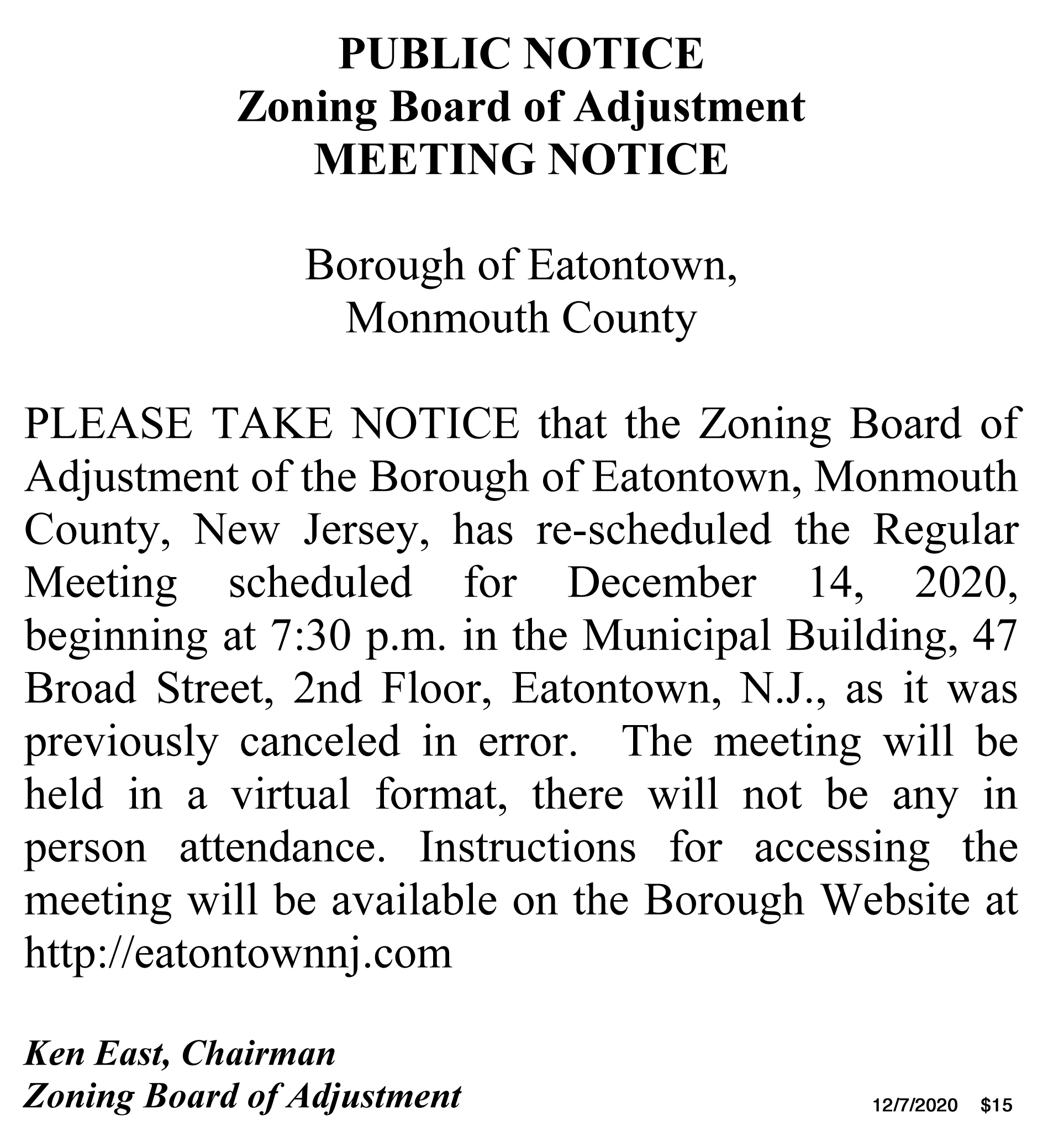
Eatontown Zoning Board of Adjustment Meeting Notice
December 8, 2020
Atlantic Highlands Arts Council First Annual Juried Art Show; Dec. 17 Virtual opening
December 10, 2020 Trenton – To ensure transparency throughout the remainder of the COVID-19 pandemic, the Senate Health, Human Services, and Senior Citizens Committee passed legislation sponsored by Senator Joseph Vitale and Senator Vin Gopal, which would require the Department of Health (DOH) to continuously publish the total number of COVID-19 deaths in long-term care facilities.
Trenton – To ensure transparency throughout the remainder of the COVID-19 pandemic, the Senate Health, Human Services, and Senior Citizens Committee passed legislation sponsored by Senator Joseph Vitale and Senator Vin Gopal, which would require the Department of Health (DOH) to continuously publish the total number of COVID-19 deaths in long-term care facilities.
“New Jersey currently has the highest rate of deaths from the coronavirus in our long-term care facilities, with 7,319 residents and staff succumbing to the disease to date,” said Senator Vitale (D-Middlesex), chair of the Senate Health Committee. “The state currently maintains a COVID-19 Dashboard that includes data on COVID-19 cases and trends. However, beginning in mid-July the cumulative deaths and cases per facility were removed. Facility data is now limited to facilities currently experiencing an outbreak and only includes data on deaths and cases occurring in the current outbreak; there’s no historical data. By requiring the Department of Health to report the historical data on all facilities, we can be more proactive in noticing trends among these facilities.”
The bill, S-3041, would require the DOH to display on its website the total number of COVID-19 deaths of employees and residents of long-term care facilities in the State, by facility, since the beginning of the COVID-19 pandemic as well as the total number of new daily COVID-19 deaths of employees and residents.
“It is widely known that COVID-19 disproportionately affects the elderly, and, as a result, many of our state’s elderly citizens have succumbed to COVID-19 in the last seven months,” said Senator Gopal (D-Monmouth). “In order to help our people, we must take better action holding facilities accountable for tallying their totals cases and deaths. Through doing this, we can see where and when spikes are happening and do what we can to stop it in its tracks.”
The bill would take effect immediately and would expire one year following the end of both the state of emergency and the public health emergency declared in response to the coronavirus disease in 2019.
The bill was released from committee by a vote of 8-0.



